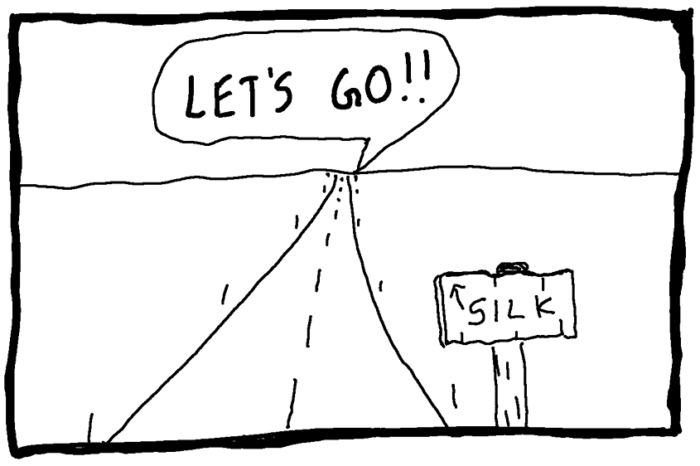
It’s President’s Day and it’s snowing like the Dickens.
I’m still sick, which is just glorious, and my symptoms have morphed into some kind of cold with all the sneezing and snot and coughing up all sorts of nastiness. I’ve also become like like an unlucky spouse in Law & Order, banging my head and face into door frames as I pass by.
I can see Sarah fielding questions at the grocery store from some overzealous security officer. “Excuse me, ma’am. How did your husband get that black eye?”
“He, uh, walked into a door.”
I don’t have a black eye, though. Just a bruised ego and a few drips of spilled coffee on my pants.

My reading presses on, though.
Marco Polo has gone to Japan and India and has stopped at all sorts of cities and villages in-between, but the real news today is how the pool game Marco Polo came into being. More specifically, why do players call out “Marco Polo” rather than, say, any other phrase in English?
There are a few possible answers, but my favorite is that Marco Polo had a reputation amongst sailors as someone who didn’t really know where he was going. So, sailors would play the game on their ships to pass the time — one player blindfolded and calling out, “Marco!” while the others hide and call back, “Polo!” How or why the game got moved into a swimming pool is anybody’s guess, but I do like the image of Marco Polo as some blind, bumbling Billy waist-deep in water calling out his own goddamned name in hopes of discovering where he ought to go.
This is somewhat backed up by Polo’s financial status, which wasn’t all that great, or, at least, wasn’t helped by his travels. He didn’t make all that much money as a merchant and he sure didn’t make much from publishing the tale of his travels. What wealth he had later in life was mostly owed to his being a respected name in Venetian society.
So, maybe he wasn’t that great of a merchant, but he sure was a great traveler. Or, maybe he was just at it for a really, really long time.
That’s probably all you need to get good at anything, really. Just keep at it.
